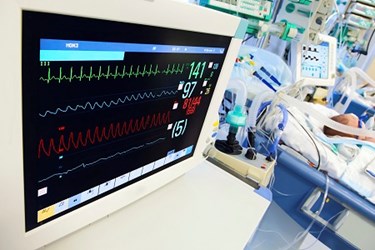Plan For Medical Device Postmarket Surveillance System Released

The Brookings Institution, in collaboration with the FDA’s Center for Devices and Radiologic Health (CDRH), has proposed a seven-year plan to develop and implement a National Medical Device Postmarket Surveillance System (MDS), to collect and store information about the safety, effectiveness, and quality of devices.
This week, the Brookings Institution’s Engleberg Center for Health (ECH) issued a report, Strengthening Patient Care: Building an Effective National Medical Device Surveillance System [PDF], outlining a system to track the performance of medical devices, to the benefit all stakeholders in the healthcare system.
According to the report’s Executive Summary, “Patients and clinicians need information about devices to inform their clinical decisions. Organizations responsible for paying for care want to ensure that the products they cover lead to optimal patient outcomes. Manufacturers want timely feedback on device performance to support patient safety and drive innovation.” An MDS, as laid out in the report, would address each of these needs, the report authors contend.
Gregory Daniel, managing director for evidence development and innovation at ECH and co-author of the report, believes that current developments and innovations in the medical device industry provide the appropriate tools to support an MDS. “The development of UDIs [unique device identifiers], as well as the constant innovation of health IT tools, and a growing evidence base of support, has created a ripe opportunity for building the proper infrastructure that will bolster patient safety and clinical outcomes,” Daniel wrote in a blog post last year.
The report stipulates that an ideal system would align with 21st century technology and seek collaboration between industry regulators, manufacturers, and clinicians. Furthermore, it would minimize administrative burden by capturing data at the point of care and using it as efficiently as possible.
"The report provides a pathway to realizing a national system that harnesses novel data sources, modern analytical techniques and the participation of all stakeholders to optimize patient care," Jeffrey Shuren, director of CDRH, wrote in an FDA blog post yesterday. "Interested stakeholders will be able to share their feedback on the report through a public docket."
The authors emphasize that the MDS is not a “stand-alone system,” but rather it should strive to coordinate with existing public and private sector programs to encourage participation and transparency.
According to the report, the new system would not compete with or replace efforts by Congress to include medical devices in the Sentinel Initiative, and it would coordinate with the Patient-Centered Outcomes Research Institute (PCORI) in its efforts to design a national research database.
The seven-year implementation process proposed in the report would begin with a two-year FDA-initiated incubator project that would use research teams and pilot programs to develop a plan for MDS implementation. The plan would be implemented over the next five years.
Harlan Krumholz, a Yale cardiologist and health care outcomes expert, spoke to The Star Tribune and expressed his enthusiasm about the program’s potential to benefit patient safety and innovation. “Interactions with the health care system are generating new insights every day. If a million people have had a device, we should have the benefit, as a society and as the next patient, of what you could learn from the experience of a million people,” he said.
